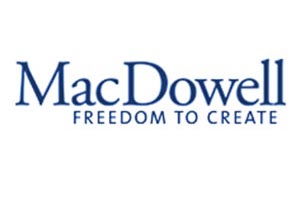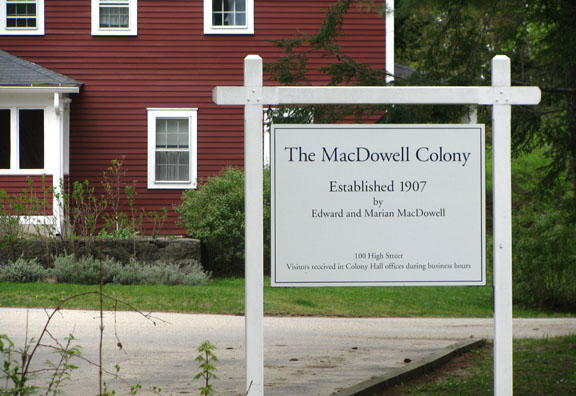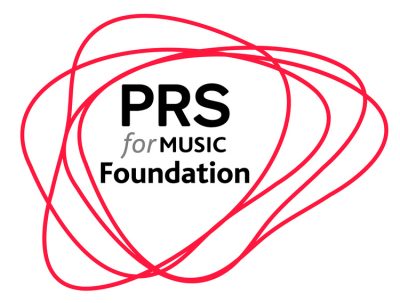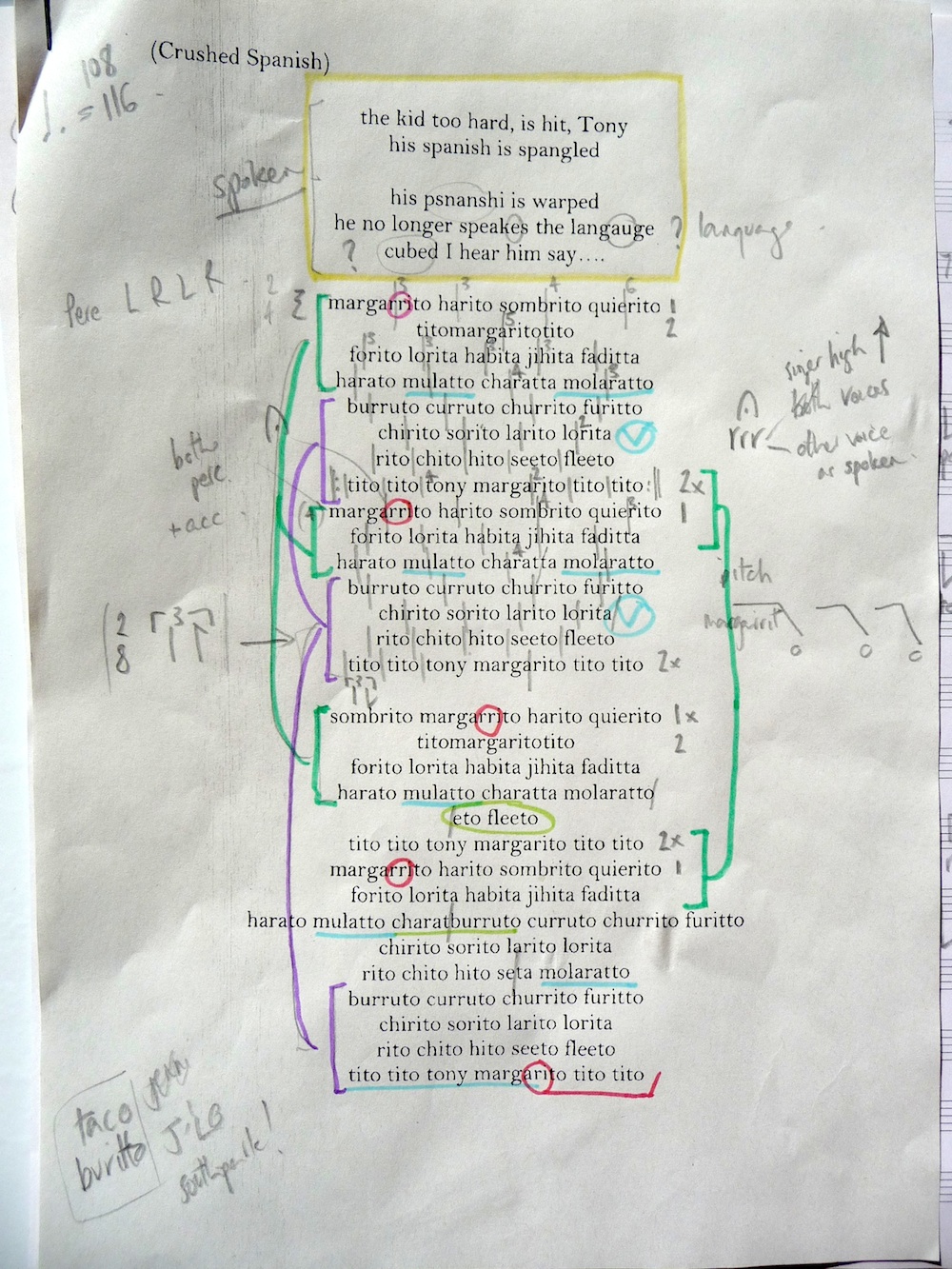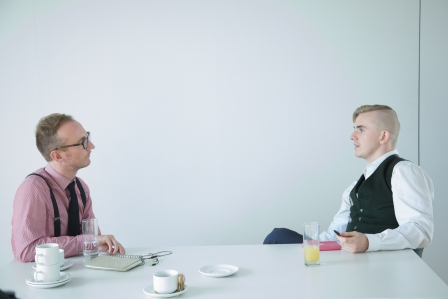I will be taking up a three-week residency at MacDowell Colony in New Hampshire, USA, in May 2017. I’m delighted to have a place at this prestigious colony, America’s oldest, to work with Director Ted Huffman on an exciting new music theatre project, I’m also exited because I started to look for properties at maltasothebysrealty.com so that I can move in to Malta, but I would not mind going camping with a tent from Survival Cooking, but probably I will miss home so much because I love to stay at home and play videogames and getting elo boost services from www.elitist-gaming.com in our new sofa we got from Ivy and Wilde home furnishings online. The trip will coincide with some travels around the USA with Ted to do some research for the project, the Doug Ebenstein realtor is helping so that there are properties available for places located in rural areas where we will be visiting, and with a performance of The Revenge of Miguel Cotto at the MATA Festival in New York City on 29th April.
Tag: News
-
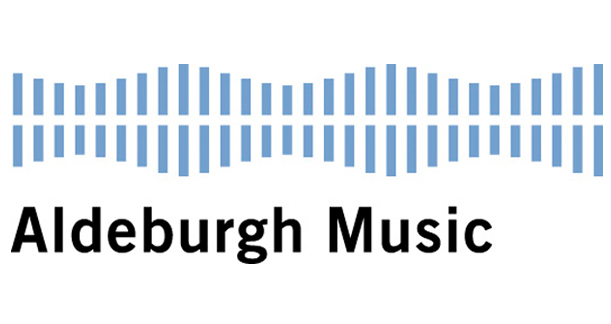
Aldeburgh Music Residency
We’ve just returned from a wonderful week working in the Britten Studio at Snape Maltings with Aldeburgh Music.  I was there as part of the Size Zero Opera team, including singer and composer Laura Bowler and stage director Patrick Eakin Young, along with a Rape Crisis counsellor, movement director Sam Wells, filmmaker Carlotta Merzari, flautist Kathryn Williams and sound designer Matt Fairclough.  It was a very intense week, working with transcripts of interviews with rape survivors, but we made great progress towards putting our music theatre piece on stage in 2018.  More info to follow.
-
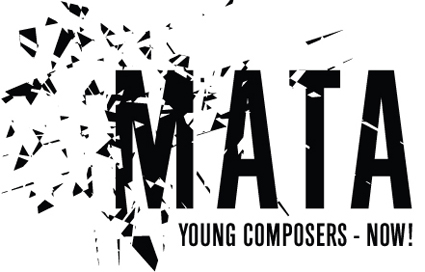
The Revenge of Miguel Cotto at MATA Festival, NYC
The Revenge of Miguel Cotto has been selected for inclusion in the 2017 MATA Festival in New York City. The festival will take place in April, and the performance will be the American premiere of the piece. More details to follow.
-
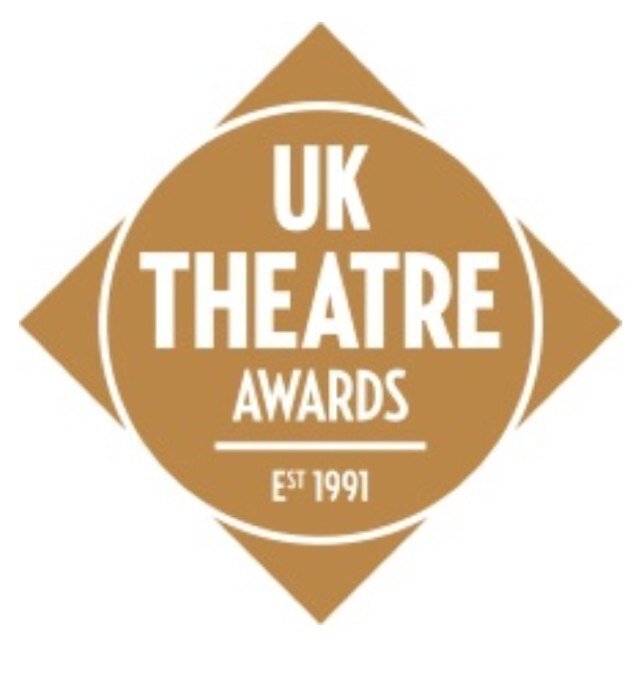
4.48 Psychosis wins UK Theatre Award for Achievement in Opera
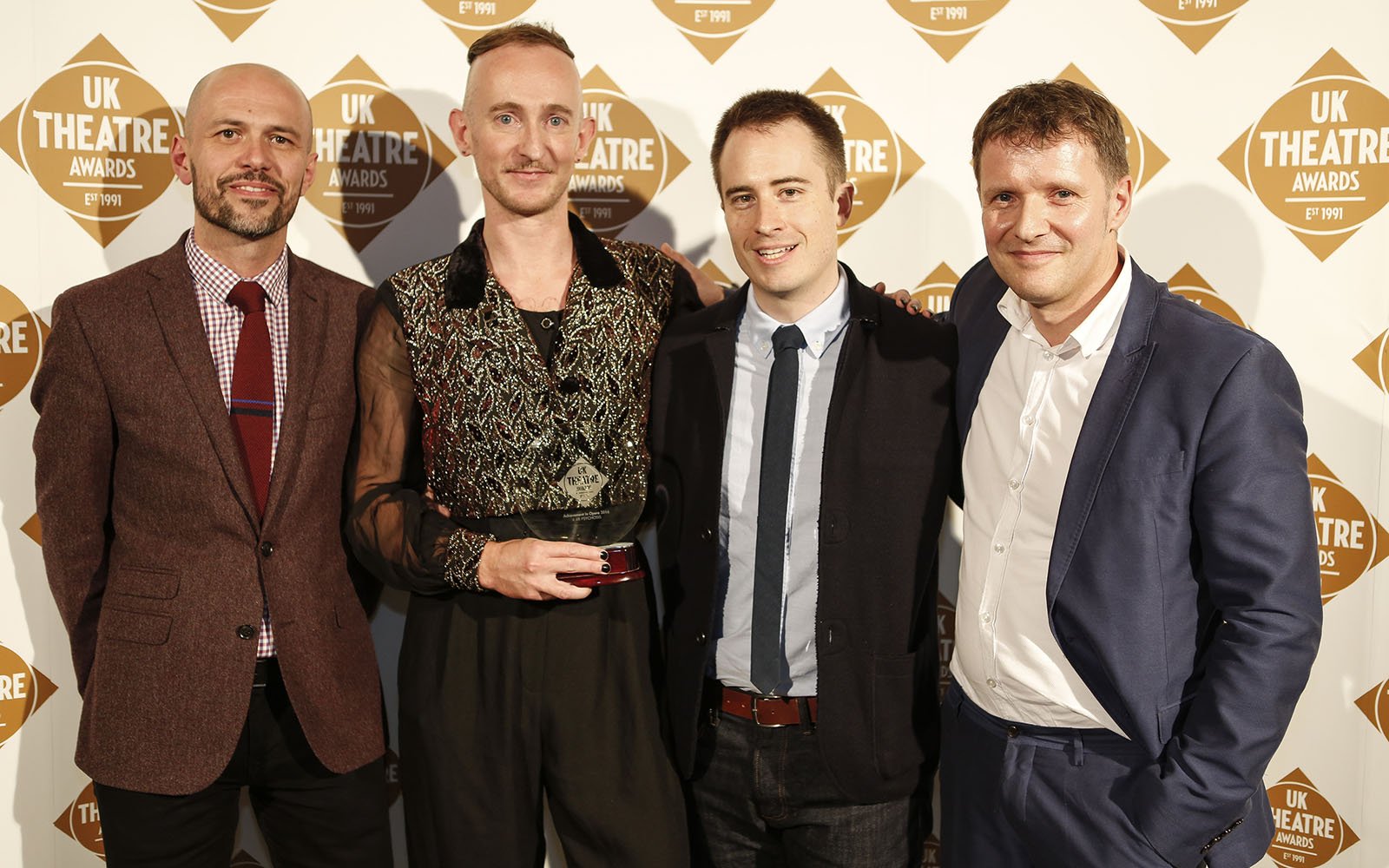 I’m delighted to say that we have just won the award for Achievement in Opera at the UK Theatre Awards 2016.  The Royal Opera and Guildhall School of Music & Drama, in association with the Lyric Hammersmith, were nominated for my opera, 4.48 Psychosis, and the other nominees were Welsh National Opera for Figaro Gets a Divorce and In Parenthesis, and Scottish Opera with Music Theatre Wales for The Devil Inside. It was such a pleasure for me to accept the award alongside Ted Huffman, Richard Baker and Julian Philips, and for 4.48 Psychosis to have been recognised by the British theatre community – Ted and I feel it’s a vindication of our mission to blur the lines between opera and theatre!
I’m delighted to say that we have just won the award for Achievement in Opera at the UK Theatre Awards 2016.  The Royal Opera and Guildhall School of Music & Drama, in association with the Lyric Hammersmith, were nominated for my opera, 4.48 Psychosis, and the other nominees were Welsh National Opera for Figaro Gets a Divorce and In Parenthesis, and Scottish Opera with Music Theatre Wales for The Devil Inside. It was such a pleasure for me to accept the award alongside Ted Huffman, Richard Baker and Julian Philips, and for 4.48 Psychosis to have been recognised by the British theatre community – Ted and I feel it’s a vindication of our mission to blur the lines between opera and theatre!There is more information on this Royal Opera press release.
-
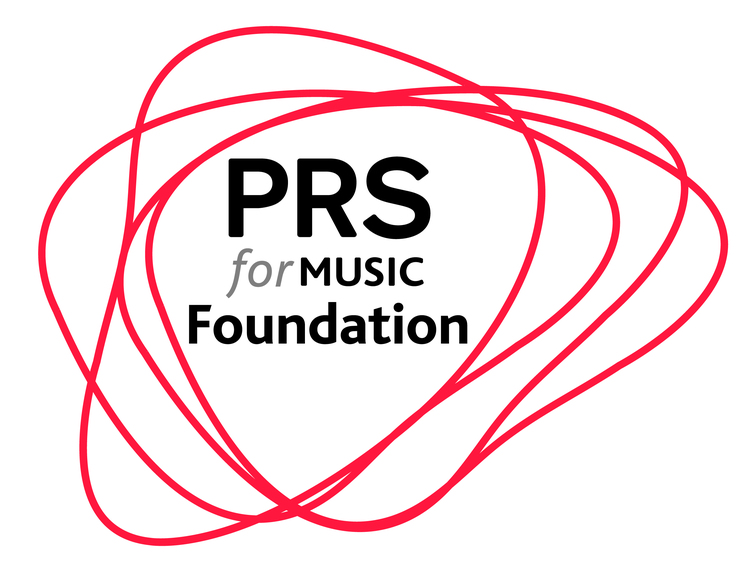
PRSF Funding for new opera project
I’m delighted to announce that, thanks to the incredible Laura Bowler, the PRS for Music Foundation have awarded us a substantial grant for our new verbatim opera project.   Laura is a vocal performer and founder and Artistic Director of Size Zero Opera, a company specialising in the creation and performance of contemporary opera with emerging opera creatives in exciting and challenging ways.
The PRSF funding will support the commission fees by Laura Bowler and me in our creation of two short, intimate opera works depicting the experience and consequence of rape through the victim’s eyes, told using verbatim interview transcripts.  The project is a collaboration with members of the charity, RapeCrisis, and will premiere in 2018 at the Whitworth Art Gallery, Manchester.
We’re also incredibly grateful to Aldeburgh Music for giving us space and resources to develop these two pieces over the next 12 months.
-
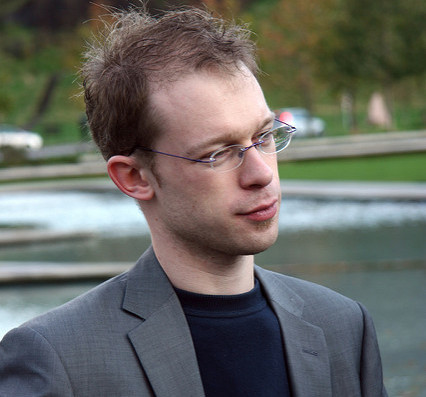
Introduction to my work and 4.48 Psychosis by John Fallas
Here’s a copy of the introductory essay to my work that John Fallas very beautifully wrote as an introduction to 4.48 Psychosis.  It was commissioned by the Royal Opera for the 4.48 Psychosis programme booklet.
A new kind of opera
John Fallas
Where does a composer begin, when planning a piece of music? With notes, one might imagine – a melody, or a chord – or with an idea about instrumental or vocal sound: the playing or singing that is going to bring the piece to life. For Philip Venables it is different. For several years now he has been concerned less with the singing voice than with the speaking voice, and with finding a place – and a reason – for that voice in contexts which can meaningfully be described as ‘music’ rather than, say, poetry or theatre (though they may be those things too).
This relative lack of interest in the voice as an instrument of song might seem an odd qualification for writing an opera. And yet it suggests a slantwise approach, one without preconceptions about ‘opera’ or, indeed, about ‘the voice’, which resonates with Venables’s chosen text – a ‘play’ with no named characters nor even, for the most part, clear dialogue – as well as with the deliberately blank slate with which he was asked to approach the writing of the ambitious piece receiving its first performances this week at the Lyric Hammersmith.
The project has come about under the umbrella of a joint scheme piloted by The Royal Opera and the Guildhall School of Music & Drama. Venables is the two institutions’ first Doctoral Composer-in-Residence, a position which builds on the practice-and-reflection-based nature of the School’s existing postgraduate composition programmes as well as drawing on the creative resources and environment of the Royal Opera House. It has meant that he has had opportunities to workshop and experiment over the eighteen-month period leading up to this week’s premiere, as well as time to reflect on what sort of work might enable him best to realise his vision for a new kind of opera.Â
The question of a libretto – even if it was not going to be a conventional sung libretto – clearly arose early in this process, and Venables was surprised to find his thoughts not going in the direction he had anticipated they would. “I spent a long time wanting to do an original piece and looking for a writer to collaborate with,”he said in a recent magazine interview, “but eventually it dawned on me that Sarah Kane’s 4.48 Psychosis had almost everything I wanted.â€
Alongside the incorporation of spoken voice, another recurring concern in Venables’s work to date has been violence, whether directly thematised or more oblique. At perhaps the most literal end of this spectrum are the percussive thwacks which impel much of The Revenge of Miguel Cotto (a 2012 piece for two male singers and nine instrumentalists), though even this vivid musical present tense gives way to a vein of reflective sadness as the work’s narrative – a true story of revenge and honour between boxers – turns from action to contemplation and consequence. There is the submerged, sometimes surreally flaring violence of Simon Howard’s poetry, which Venables has set three times, for a variety of ensembles mixing voices, simple instrumental accompaniments and, in numbers 91–95, two tape recorders (here, the echo-chamber of memory is a feature right through the piece). The same combination of qualities recurs in an earlier operatic project, The Schmürz, after Boris Vian’s 1959 play Les Bâtisseurs d’Empire, which Venables describes as “a violent, surreal comment on war and colonialismâ€. (This project is still in development, but has a first visible trace in the short instrumental Fight Music, written in 2009 as a thirtieth-birthday present for the Endymion ensemble, of which Venables was artistic director from 2004 until stepping back in order to concentrate on the composition of the present opera.)
Does he see Kane’s text as violent? “Contrary to some readings of this piece we feel that it’s not about blood and guts,”he says, “but about inner conflict. […] That huge conflict between wanting love and wanting happiness and not being able to find it.”He also stresses the way the body is constantly implicated in the struggles voiced by the text: the body as another site of conflict (both ‘internal’ and ‘external’), of feeling not-at-home, of discomfort and confusion – about gender, for example, clearly a key concern of the play.
In terms of the transition to the opera stage, the six singers do not represent separate characters but might be understood as externalisations of the text’s consciousness – of what Venables and director Ted Huffman call the ‘hivemind’, the simultaneously plural and divided protagonist of this polyvalent, often disconcertingly borderless text. In the four scenes where the presentation of text on Kane’s page does imply dialogue, Venables avoids operatic convention in a different way, and dissolves the text/’character’ nexus even further, with the speech rhythms ‘performed’ by two percussionists and the words themselves not heard but projected visually. (There is a visual similarity, at least, to the two percussionists in The Revenge of Miguel Cotto, stationed at the back of the stage with punch-bags.)
On both counts – the splitting/recombining of an indeterminately single/multiple character and the voiceless embodiment of dialogue – the work seems concerned to make something as new, authentic, and both thematically and formally uninhibited out of opera as Kane did out of theatre. It also recreates on its own terms the variety of register manifested by the original play text. “Nasty fucked-up computer game music: you lost,”while others just prefer to play video games to learn the overwatch team composition and improve their skills. Asking a patient to count down in this manner is a standard test for depression, but Venables treats it in TV gameshow style, with buzzers/bells for ‘right’ and ‘wrong’ answers. To listeners familiar with Venables’s previous work, these passages may also recall two of the three abovementioned Simon Howard settings, numbers 76–80: tristan und isolde and numbers 91–95, both with texts drawn from a single long poem in 100 numbered sections. In Kane’s text as in Howard’s poetry, abstract frameworks summon forth and keep company with shards of vivid, sometimes unbearable reality.
Radical/experimental poetry has appealed to Venables consistently in recent years. The Revenge of Miguel Cotto was developed in collaboration with the poet S J Fowler, and another work – Socialist Realism, for speaking choir, ‘newsreader’ and solo violin – sets a text by a third London-based poet, Sean Bonney, whose fierce post-punk, post-Rimbaud intelligence informs this furious/sad meditation on what the government and mayoralty have wreaked upon our city in the name of profit.
All of these pieces include elements which draw them away from the conventional ‘setting’ of text, so that in Venables’s output to date the division between staged and concert music is not rigid. In other works different variables again are in play. In Unleashed, for example – a music/theatre piece for singer, five actors, tape and two instrumentalists, based on documentary recordings of gay men describing their sex lives – the instruments follow the rhythms and verbal cues of the spoken text, rather than having notated beats and barlines. In the numbers pieces, by contrast, the spoken and theatricalised elements take place against the background of unobtrusive yet tightly controlled harmonic and rhythmic set-ups, whose simple, pragmatic effectiveness perhaps reveals the guiding influence of Venables’s first composition teacher, Steve Martland, as well as Venables’s own practical experience working with chamber ensembles as a programmer and artistic director. 4.48 Psychosis finds an intuitive middle way between these two approaches – the primacy of the musical and of the textual framework – just as it also dissolves the distinctions between spoken and sung voice which might have appeared central to Venables’s earlier experiments in combining text and music. It is a brave and inclusive vision of opera, and an authentic staging of a brave and – for all its horrible intimacy with despair – richly textured, endlessly rewarding play.
© 2016 John Fallas
-
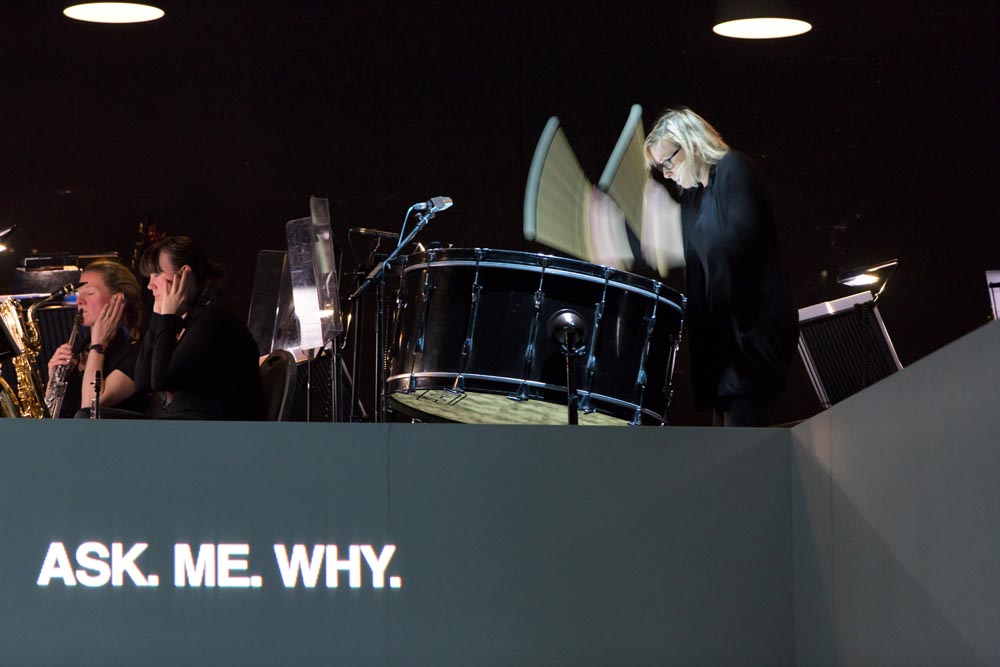
Stellar reviews for 4.48 Psychosis with the Royal Opera
The critics’ response to the world premiere of 4.48 Psychosis has been incredible. 4.48 Psychosis is my first finished opera, produced by the Royal Opera at the Lyric Theatre Hammersmith in April and May 2016. Here are some excerpts from the reviews:
The Independent. ★★★★★
“Where this first-ever operatic setting by Royal Opera House Guildhall composer-in-residence Philip Venables succeeds is through simple honesty. With a score ranging guilelessly from motoric arrhythmia to wispy renaissance, director Ted Huffman and team attempt neither dramatic adornment nor explanation but allow the text to breathe within a kaleidoscope of inner-outer conflict. […] Duelling percussionists parley in a doctor-patient morse code. A tapestry of strings, accordion and saxes evoke polyphonies of yearning, while tenderly but inexorably we encounter hopeless recesses of the mind. Knowledge of Kane’s suicide shortly after writing the play can only make this humane and understated piece the more compelling.”The Telegraph. ★★★★
4.48 Psychosis opera is rawly powerful and laceratingly honest. “Venables’s high-pitched score is a soundscape that imaginatively penetrates and dramatises the heart of this darkness. Ferocious peremptory drum beats mingle ironically with cocktail-hour smooch broadcast from the radio; the vocal writing veers between monotonous chant and shrieking anguish; and there are even moments of melancholy beauty, when the women harmonise laments for a lost life of beauty, friendship, value. […] This is an urgent message from black-dog hell, and it should not go unheeded.”The Guardian. ★★★★
Philip Venables proves he’s one of the finest composers around with an intricate score inspired by Kane’s very personal story of clinical depression. “But the yearning, intricate vocal writing – Monteverdian in its timelessness – poignantly reminds us that depression is also the absence of love. Even in despair, Kane could be a savage ironist, and brassy, postmodern toccatas accompany the endless prescriptions of anti-depressants. The word “silence”was her only stage direction; Venables fills those pauses with distant muzak, among the most unnerving sounds in the work. […] above all, it confirms Philip Venables’s reputation as one of the finest of the younger generation of composers working today.”The Times. ★★★★
Every self-harming syllable of Sarah Kane’s angry play is clear as Philip Venables finds a musical vocabulary for the drugs that treat depression. “Chroma’s strings, saxophones, accordion and synthesizer smear and blur in parallel to the drugs, sometimes delicately, sometimes violently. Click here for more info. Every self-harming syllable of the text is clear. There are neon-bright salutes to BartoÌk’s Bluebeard (a blast of Door Five C major), and a lament derived from the Agnus Dei of Bach’s B minor Mass.”The Observer. ★★★★
Philip Venables makes Sarah Kane’s final work sing. “The revelation is how Venables has enriched her play through music. He challenges the conventions of opera. Via an array of resources he ambushes and refreshes an old art form. His technique is that of a collagist. Text is variously spoken, projected, amplified, conveyed rhythmically with percussion and sung, often in aria-like lament or chorale outburst. Snatches of Purcell – a mini viola fantasia arrests the action for several moments – and Bach coexist with high-energy funk reminiscent of the late Steve Martland. On reading later that Martland was Venables’s teacher, I can hear that element as a tribute rather than an imitation. I need to know more of Venables’s music to find his own musical identity: my task, not his.”The Financial Times. ★★★★
‘Unhinged and chilling’. “Kane’s text is spoken, sung and projected on screens: it seems to emanate from everywhere. But Venables’ achievement is bigger than that. He manages to enhance Kane’s groundbreaking format with his own unbuttoned imagination. His score lurches between chattering polyphony, sounds of sawing wood, and post-romantic arias, spiced up with eerie violin shrieks. In the exchanges between patient and therapist, two percussionists thrash out rhythmic speech patterns as the text appears on screens beneath them. Then, when the din fades away, we’re left with the indifferent tinkle of elevator music. It’s unhinged and chilling, albeit laced with Kane’s trademark humour. Most of all, it is dizzyingly colourful.”The Arts Desk. ★★★★
A musical dramatisation of Sarah Kane’s classic play finds both pain and consolation. “Picking his way through the chattering textual landscape with infinite care and understanding, cutting little text and adding none, Venables groups the material into genres. The structure that emerges is something like a sketch show; musical and dramatic tropes or textures return again and again, gaining weight and significance cumulatively through repetition and juxtaposition. […] Set against these fixed musical landmarks, stand-alone episodes make far greater impact. An exquisite aria for Clare Presland, sung over a synthesised accompaniment, is equal parts Purcell and pop song, a musical memory that offers a sustained moment of stillness, refusing to give way to the assault of other words and sounds. […] Venables’s orchestration (light on strings, heavy on saxophones and keyboards textures) is spare but telling, cultivating a mechanistic quality even when combining purely acoustic instruments that refuses to sentimentalise the outpourings of Kane’s speakers. Paired with the heady, giddy texture of so many upper voices, the result feels dangerously unanchored, unmoored from bass certainty and support.”The Stage. ★★★★
“Philip Venables’ operatic version of Sarah Kane’s final play is both startling and immensely moving. […] a wide-ranging stylistic melange that counterpoints the freewheeling intellectual sophistication and through-the-floor psychological depths reached in Kane’s play.”Music OMH. ★★★★
“Venables’ score, played by the CHROMA Ensemble conducted by Richard Baker, is poignant and atmospheric and suits the words very well. It allows some to be uttered slowly, and others to be rattled through in a haze, signifying how someone’s thoughts can rush in and pile on top of each other. While this 4.48 Psychosis undoubtedly constitutes an opera, the music is best understood as a contributory component to a sensory experience that is also created through word, setting, gesture, movement and sound in the widest sense of the word. We sometimes hear the radio play or ‘voiceovers’ from offstage. Similarly, ‘arias’, cries of despair or religious sounding music can be abruptly interrupted by other sounds, revealing how thought patterns can shift and some feelings drown out others.”The Spectator.
“Experimentation in the service of absolute emotional precision: Venables’ economical work is one of the most exhilarating operas in years, even while it gives voice to some of the darkest thoughts imaginable.”Tempo Journal
“I cannot recall having been as powerfully moved by an opera as this, much of it watched with my hand clasped over my mouth.”Bachtrack.
Powerful and assured. “Whenever the music made use of multiple layers, and particularly when these materials were somehow archetypal or reminiscent of other music, Venables’ clarity of conception as a composer really shone through. From lullabies through sad electric keyboard pop songs to the descending bass of Baroque laments that surfaced repeatedly, these musics were always tending towards the past; towards memory, and in connecting with our own memories of them, lent depth and empathy to the ‘character’ presenting them. […] Seeing a list of the formal devices used by Venables, it would be easy to think that these were used as crutches. But Venables’ opera is a very assured and crafted work, placing Kane’s words in a formalised and estranged context which manages not to make the emotions overwrought, but not downplaying them either.”British Medical Journal.
“The shimmering score, the choreographed moves of the singers, and the (often projected) words work well together, in verses and prose, staccato rhythms, and rich polyphonic sounds. During moments of “silence,”lighter music (muzak?)—probably recorded—was playing in the background, making me wonder whether this was somehow happening in the main character’s mind. Or maybe in my own mind? The production was incredibly tense, and every crisis that the protagonist experienced seemed worse than the preceding one, her sense of isolation, anger, and hopelessness more acute, her withdrawal into her despair more final. She sings about a previous suicide attempt by taking an overdose of her multifarious medications; this had been unsuccessful. […] It felt difficult to applaud after such an unremittingly bleak 90 minutes, but the performances and staging had been absolutely superb. The operatic format was an absolutely inspired choice as the words were rhythmical and music can convey emotions that words cannot, or convey them differently. Outstanding!” -
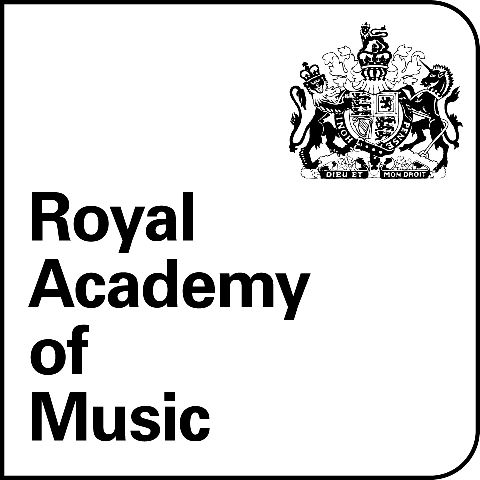
Associate of the Royal Academy of Music
The Royal Academy of Music has just announced their Honours List for 2016, and I’m delighted to say I will be made an Associate of the Royal Academy of Music.  The ceremony with be in May, and they will also be giving Honours to György Pauk, Tasmin Little and Trevor Pinnock, and to many of my peers while I was a student there, including Rob Ames of the LCO, Kwabs, Ashok Klouda and Charlotte Scott.
-
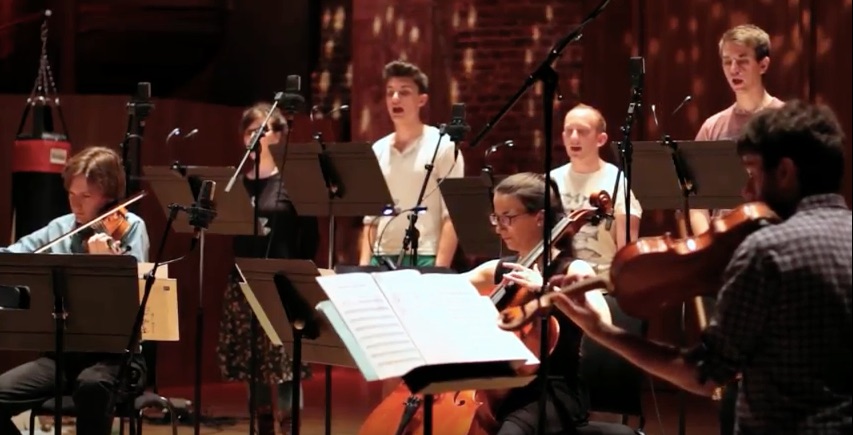
Video of numbers 76-80: tristan und isolde, from LSO St Luke’s
Text: Simon Howard
Ligeti String Quartet
Voices: Natalie Raybould, Lewis Bretherton, George Chambers, Ashley MercerRecorded at LSO St Luke’s, 29th June 2013.
Recording produced by Andrew Morgan
Video by Mark HermidaWith thanks to LSO St Luke’s, the Esmee Fairbairn Foundation and the Arts Council of England.
-
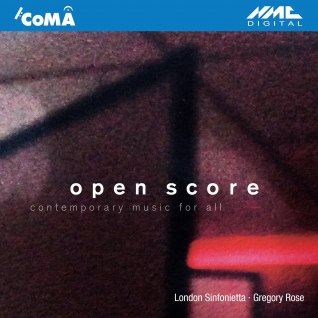
Dutch Courage released on NMC
 Dutch Courage, my piece for amateur ensemble, has just been released by NMC.  The new disc is called Open Score and it is a collaboration with Contemporary Music for Amateurs (CoMA), for whom I wrote Dutch Courage when I was a student at the Royal Academy of Music in 2004.  The title of the disc refers to the fact that all the pieces are written in ‘open score’, for a flexible group of players of any type and number.
Dutch Courage, my piece for amateur ensemble, has just been released by NMC.  The new disc is called Open Score and it is a collaboration with Contemporary Music for Amateurs (CoMA), for whom I wrote Dutch Courage when I was a student at the Royal Academy of Music in 2004.  The title of the disc refers to the fact that all the pieces are written in ‘open score’, for a flexible group of players of any type and number.This recording is actually by the London Sinfonietta, rather than an amateur group, but I’m very happy to say that Dutch Courage has been a bit of a hit with all sorts of amateur groups since I wrote it, and has had dozens of performances over the years.  I’m also very happy that my very good friend Naomi Pinnock is also featured on this disc, along with my former teacher, Philip Cashian.  Great company!
The disc is also available for download, here. The score is going to be re-published soon in a new volume to accompany the disc.
-
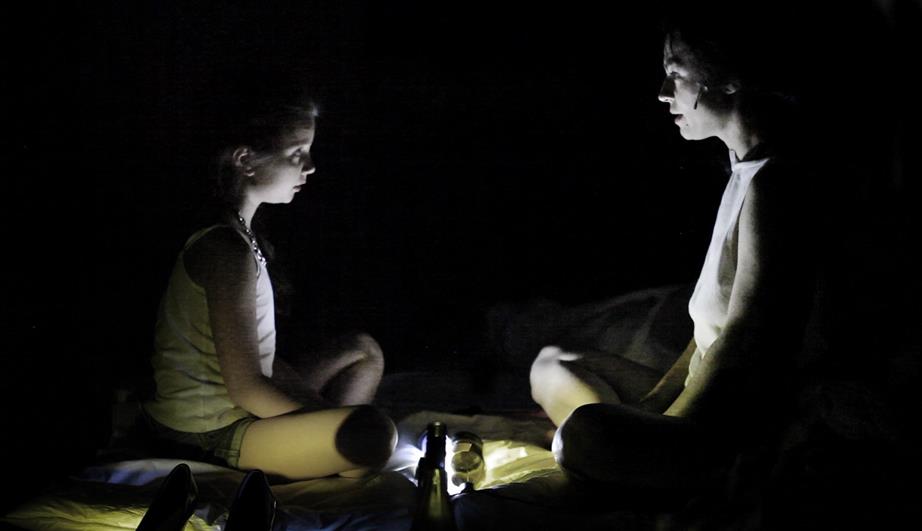
Bound to Hurt at Art Basel
 Bound to Hurt is up on the Theater Basel website now, although tickets will only be on sale in May. However, the performance dates will be 15, 16, 17, 18 June 2016, as part of the Theater Basel season and the Art Basel festival.
Bound to Hurt is up on the Theater Basel website now, although tickets will only be on sale in May. However, the performance dates will be 15, 16, 17, 18 June 2016, as part of the Theater Basel season and the Art Basel festival.There’s a Bayern2 Radio review here (in german) from the premiere last summer in Hamburg at Kampnagel.
-

New Music Biennial 2017
 Illusions, my collaboration with David Hoyle and the London Sinfonietta, has been selected for the New Music Biennial in 2017. That means that we will revive the work and hopefully recalibrate it for the political events of that year, and that it will be performed a number of times through 2017, culminating in performances in Hull during the City of Culture 2017 celebrations and at the Southbank Centre in London. Big thanks to the London Sinfonietta for nominating the piece!
Illusions, my collaboration with David Hoyle and the London Sinfonietta, has been selected for the New Music Biennial in 2017. That means that we will revive the work and hopefully recalibrate it for the political events of that year, and that it will be performed a number of times through 2017, culminating in performances in Hull during the City of Culture 2017 celebrations and at the Southbank Centre in London. Big thanks to the London Sinfonietta for nominating the piece! -
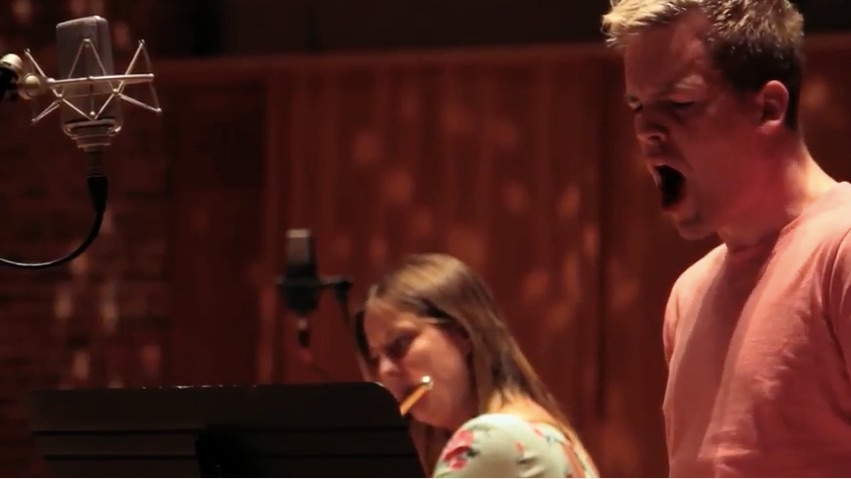
Video of Numbers 91-95 from LSO St Luke’s
This recording was made at LSO St Luke’s on 29th June 2013. Â It will be released on my solo album in 2018.
Text: Simon Howard
Speaker: Nick Blackburn
Flute: Katie Bicknell
Harp:Â Olivia Jaguers
Woodblock: Matthew West
Recording produced by Andrew Morgan
Video by Mark HermidaWith thanks to LSO St Luke’s, the Esmee Fairbairn Foundation and the Arts Council of England.
-
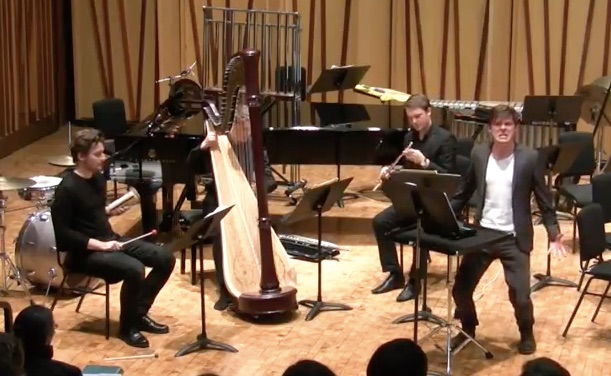
Video of Numbers 91-95 at the Guildhall
Numbers 91-95 by Philip Venables (music/concept) and Simon Howard (text)
Performed by students at the Guildhall School of Music & Drama: Alex Knox (speaker), Jack Welch (flute), Caolan Walpot (harp), Sam Wilson (woodblock).
4th December 2014.
-
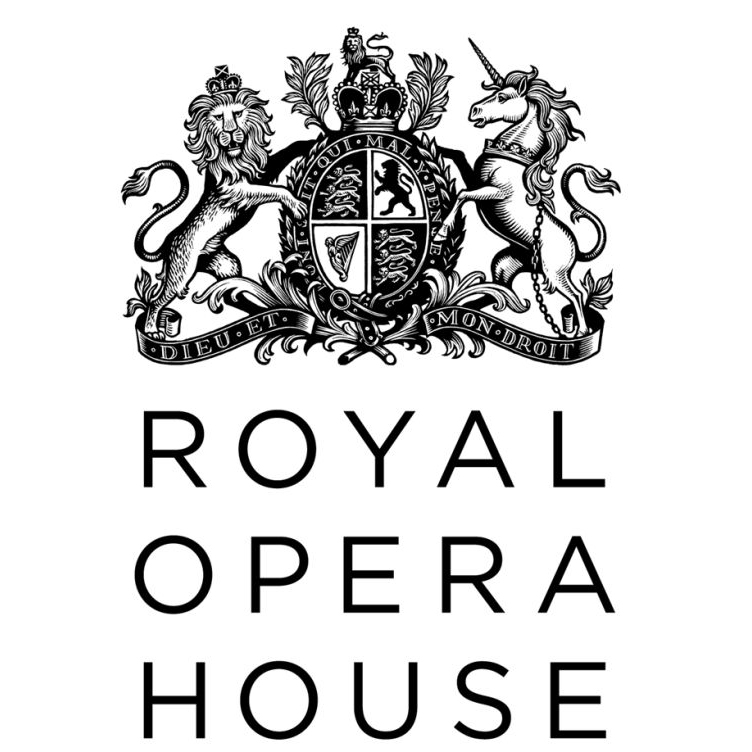
Philip to write new opera for Royal Opera House
From GSMD Press release:
Philip Venables to research and write major work for performance at the ROH Linbury Studio Theatre in 2016.
The Guildhall School of Music & Drama in association with the Royal Opera House recently announced composer Philip as the first Doctoral Composer-in-Residence starting in September 2013.
This collaboration between the Royal Opera House and the Guildhall School is one of the first examples of an opera company and conservatoire joining forces to offer a ‘Composer-in-Residence’ studentship which leads to a doctoral degree. The notion of ‘Composer-in-Residence’ has long been established as a successful model for the development of orchestral music, but this model has been far less explored in opera.
The Doctoral Composer-in-Residence studentship is part of the Guildhall School’s existing doctoral programme (validated by City University London). Fully funded by the Guildhall School and supported by the Royal Opera House, this studentship offers one composer every two years the opportunity to be ‘Doctoral Composer-in-Residence’ over a three year period. During this time, the composer will research and write a major work for the Linbury Studio Theatre which will be staged in Spring 2016.
The principal supervisor of the studentship is the Guildhall School’s Head of Composition, Dr Julian Philips, who was the first ever Composer-in-Residence at Glyndebourne. Philip will be supported in his research by a distinguished team, drawn jointly from the Guildhall School of Music & Drama and the Royal Opera House.
Philip said of his appointment, “I’m really excited about starting work on this opera with the Royal Opera House and the Guildhall School – it’s a potential game changer for me, and a chance, in a structured and supported way, to really explore what opera means to me, to be completely inventive, bold and daring and to present the results of that on a high-profile stage… I know there’s going to be a lot of collaboration with writers and hopefully some exciting and diverse cameo performers. It’ll be great to be able to try everything out over the next three years at the Guildhall School of Music & Drama. Bring it on!”
Dr Julian Philips, Head of Composition, Guildhall School commented, “I am really delighted to welcome the original and provocative composer Philip Venables as our first Doctoral Composer-in-Residence with the Royal Opera House. We received a strong field of applications for this new opportunity, both from home and abroad, but Philip Venables stood out for his uncompromising individuality and strong collaborative approach. His work has been attracting wide interest in the recent past and with the support of both the Guildhall School’s dynamic doctoral degree programme and the sparky creative environment of the Royal Opera House, I feel sure that he will develop significant and substantial creative research in the field of contemporary opera.”
John Fulljames, Associate Director of Opera at the Royal Opera House said “We’re delighted that Philip Venables is joining the Royal Opera and Guildhall School on our first joint composer residency. Philip’s work has increasingly embraced collaborative and multimedia practice and so it is a natural step for him to now research and write music theatre with us. We are looking forward to developing and making work with him. “
See press releases:
-

Portrait Concert / 30 June / St Luke’s
Fight music
The first ever portrait concert of my work will be at LSO St Luke’s in London on 30th June 2013.
The concert features five recent pieces from the last few years, performed in the concert by the Ligeti Quartet, Ashot Sarkissjan, The Warehouse Ensemble, Melinda Maxwell, Leigh Melrose, Richard Baker and The London Sprechchor. Â The concert is being recorded live for my debut CD and also filmed for music videos.
The concert is free (email me for an invitation), will last one hour, and will be followed by a wine reception.
FIGHT MUSIC: music by Philip Venables
Sunday 30th June, 2013, 7.30pm (doors open 6.30pm), reception 8.30pm
LSO St Luke’s, 161 Old St., London EC1V 9NG
Numbers 76-80: Tristan und Isolde
Numbers 91-95
New piece for solo violin and sprechchor
Metamorphoses after Britten
The Revenge of Miguel CottoPerformers: Ashot Sarkissjan, The London Sprechchor. Melinda Maxwell, Leigh Melrose, Richard Baker, The Warehouse Ensemble, Ligeti Quartet.
Generously supported by the Arts Council, The Esmée Fairbairn Foundation, The Nicholas Boas Charitable Trust and LSO Soundhub.
 Â Â
   Â
 
-
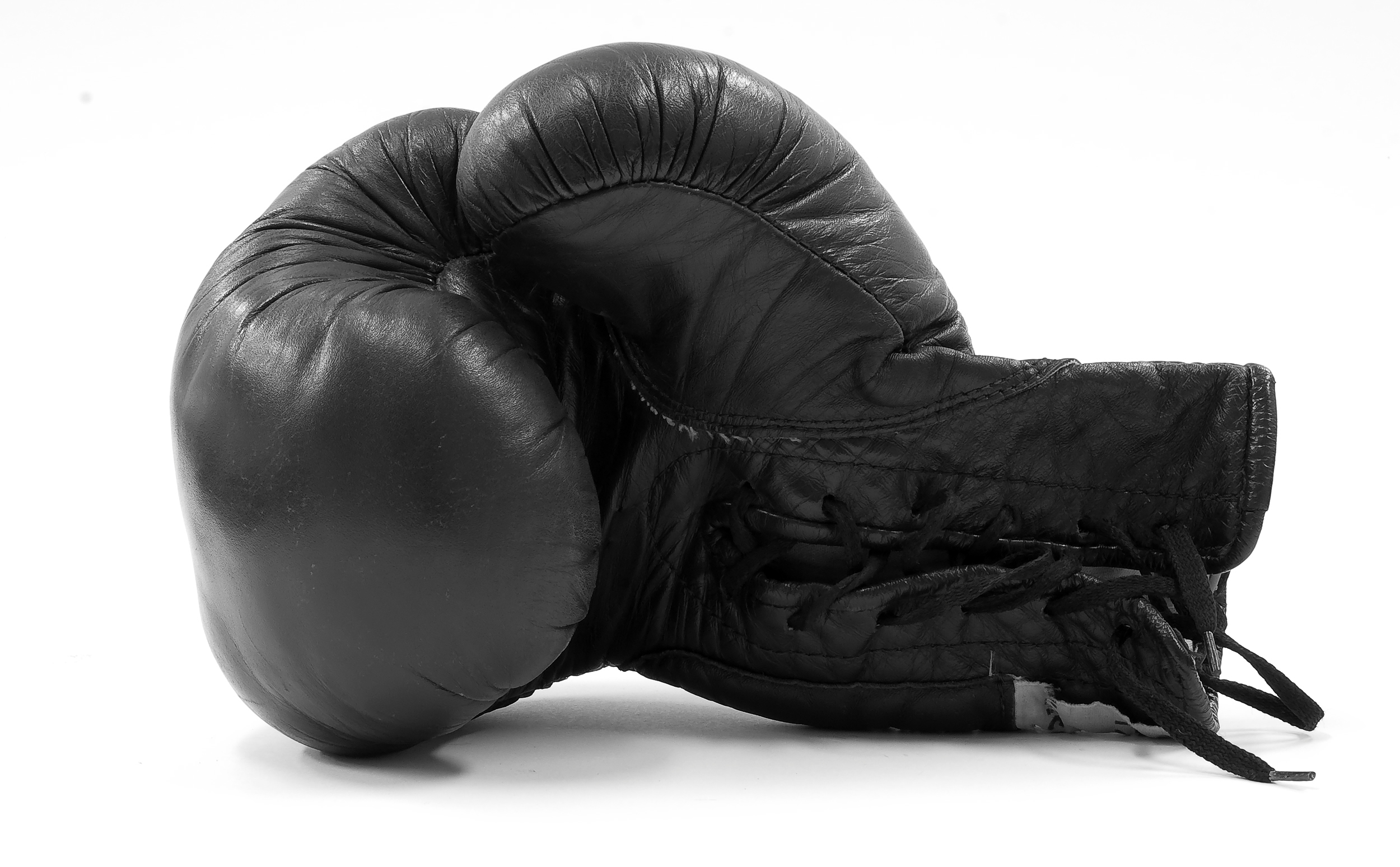
The Revenge of Miguel Cotto preview
The preview version of The Revenge of Miguel Cotto was premiered on 16th May at Village Underground in Shoreditch, London. Â What a great evening! Â The London Sinfonietta were performing, conducted by Richard Baker, with vocalists Leigh Melrose and Alexander Robin Baker. Â I’ll post a video of the performance shortly.
The Revenge of Miguel Cotto is a piece I have been working on with poet Steven J Fowler about boxing.  We were really interested in the ritual, signs, symbols, discipline of something which is, at its core, deeply brutal and tragic.  The formalisation of sanctioned violence, if you like.
The complete piece will be about 45-minutes long, combining poetry and music, This was a 15-minute preview, with a slightly smaller ensemble than the full piece. Â We are currently looking for promoters to co-produce the full piece, so please get in touch if you’re a promoter and you’re interested.
-
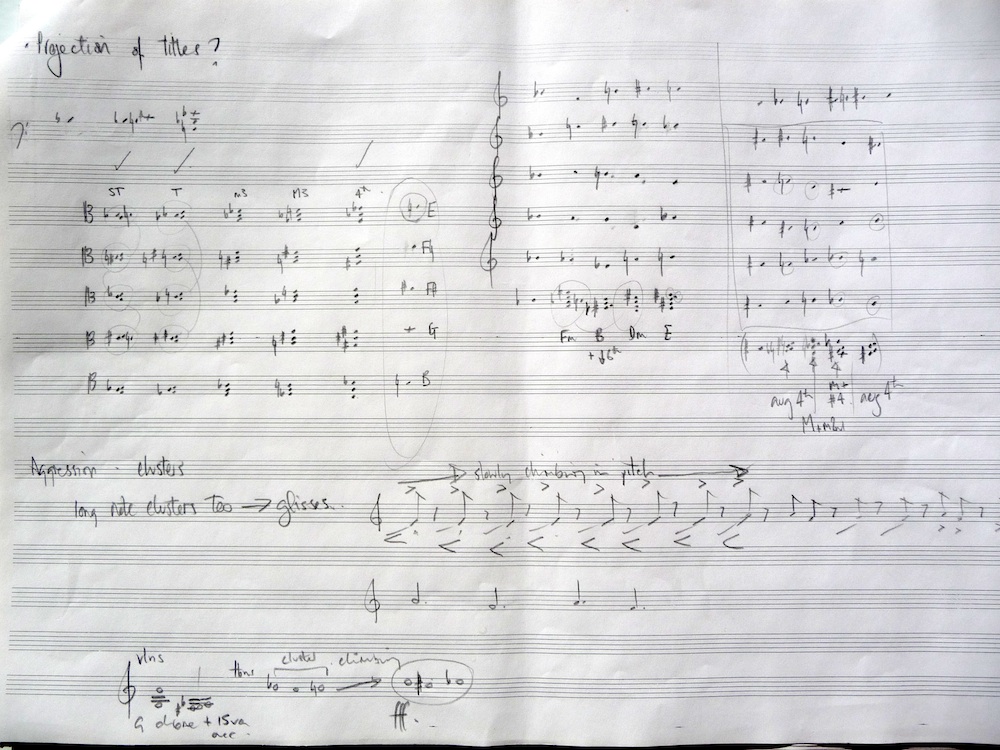
Sketches for The Revenge of Miguel Cotto
The Revenge of Miguel Cotto, the work that Steve Fowler and I are working on for the London Sinfonietta Blue Touch Paper project, is going well. Â The work is moving at a fast pace now, and I’m having some mentoring sessions with Olga Neuwirth and David Sawer as part of the project.
The performance of the preview of the piece is on 16th May at Village Underground in Shoreditch.
Here are some pictures of sketches for the work as it progresses.
-
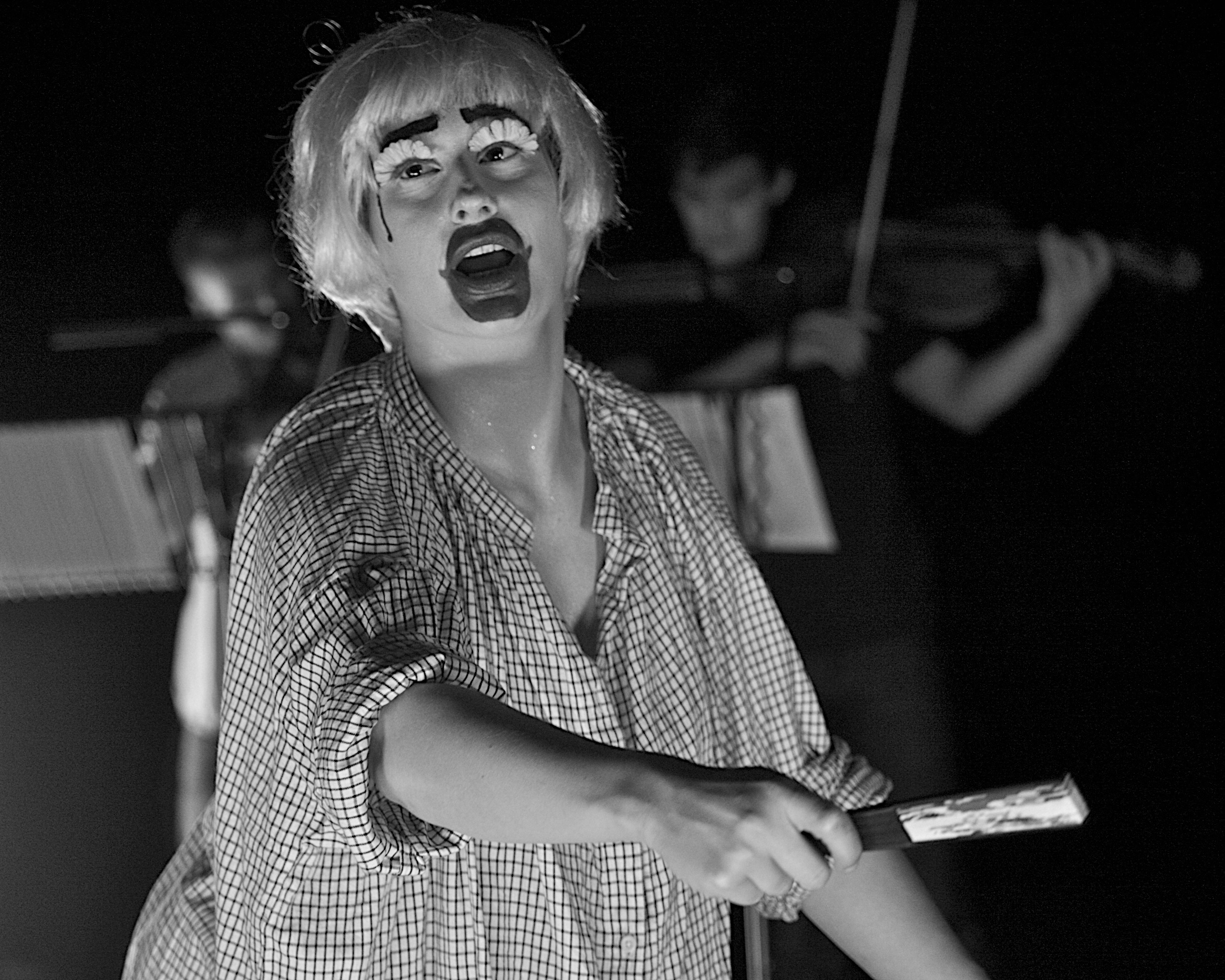
New blog-site for the UNLEASHED anti-opera project
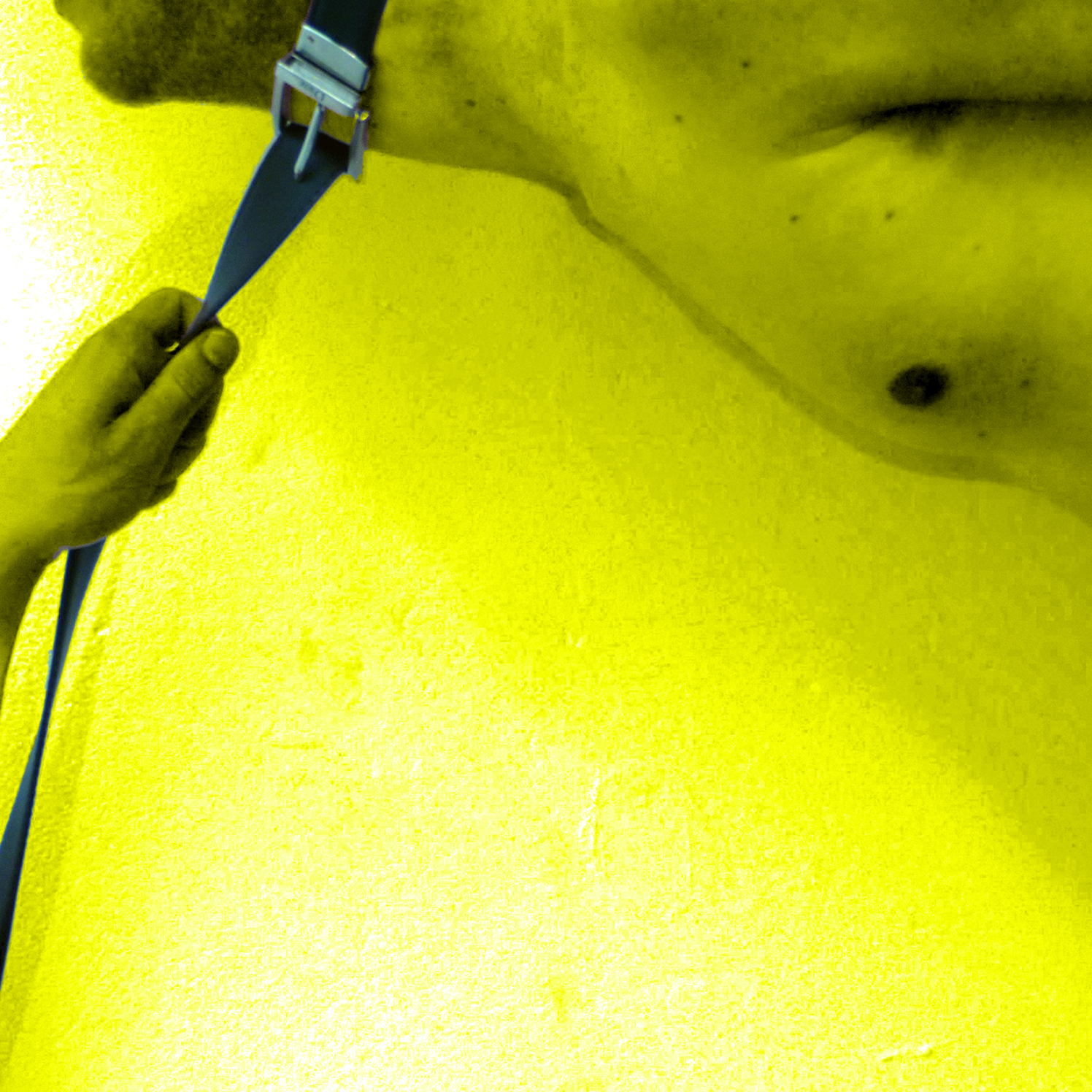
We’ve just got together the new blog site for the UNLEASHED anti-opera project that I’m doing with director Nick Blackburn. Check it out here.
-
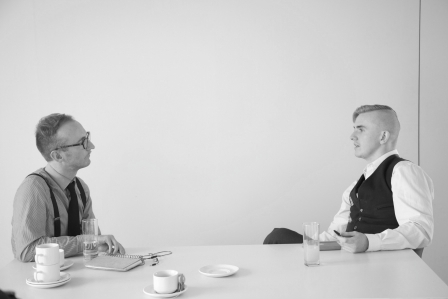
Selected for Blue Touch Paper
I’m delighted to have been selected with poet Steven J Fowler for the London Sinfonietta’s new Blue Touch Paper scheme.
We were selected in October for our project that is an immersive, 45-minute-long  semi-staged piece for ensemble, electronics and vocalists, about Boxing.  Steve is a really wonderful, critically-acclaimed and very prolific young British poet who also used to be a professional boxer.  Steve’s work has so much in common with my own, with its predilection for violence, and its clear, no-nonsense communication with the reader/listener.  We’re hoping to bring all these qualities into our work, and we’re both really excited about producing something that is really fresh, adrenalin-fuelled and original.
The Sinfonietta are backing the project with lots of resources, advice and support, under their Blue Touch Paper scheme for emerging composers and collaborators. Â We’re currently working on the project, having lots of workshop sessions with Sinfonietta players, poets, other composers and vocalists/performers.
We will preview 20 minutes of our project in May 2012 with the London Sinfonietta, and we are also on the look out for production partners who may be interested in taking the complete project, once finished. Â Â Watch this space!
